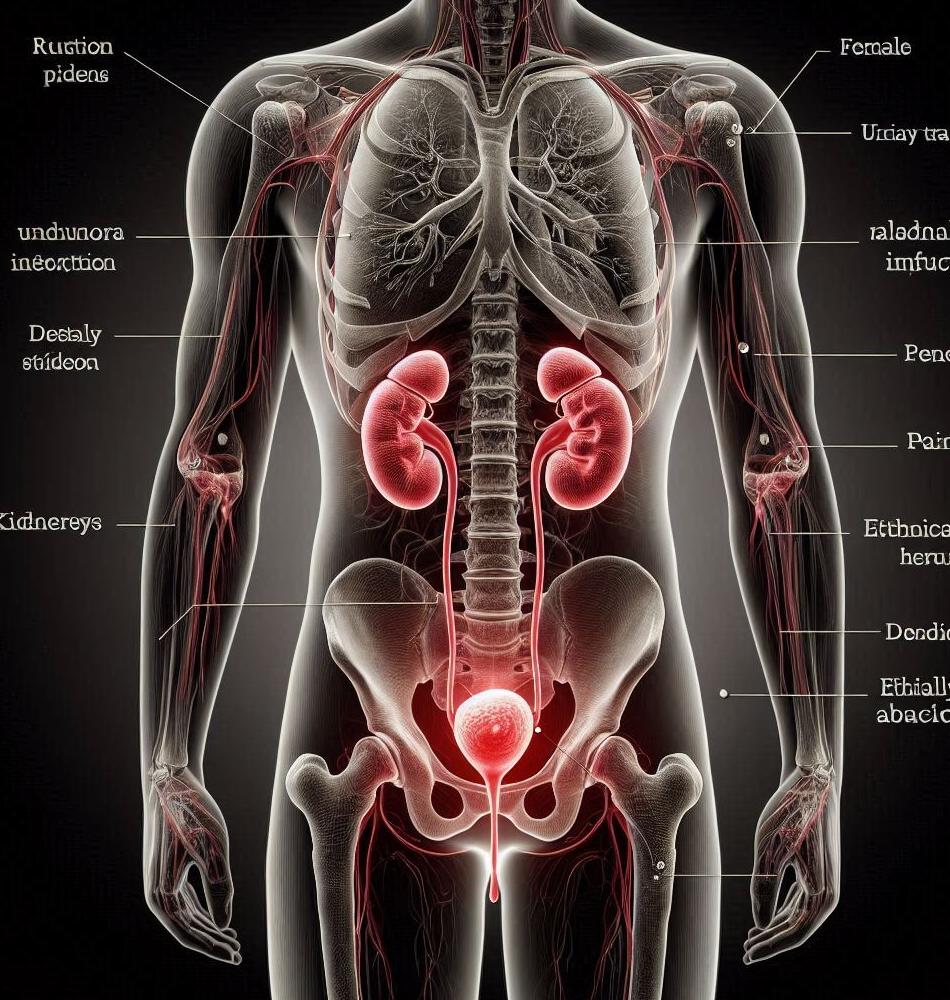How Painful is a Kidney Infection? 🩺
A kidney infection, also known as pyelonephritis, can be one of the most painful experiences a person might endure. This condition typically arises when bacteria travel up the urinary tract and invade the kidneys. Symptoms can range from mild discomfort to excruciating pain, making it crucial to understand how it manifests and what you might feel. In this article, we will delve into the painful aspects of a kidney infection, explore other symptoms, and provide insights on prevention and treatment.
The Pain Factor in Kidney Infections 🔎
The pain experienced in a kidney infection is often described as intense and can significantly affect daily activities. Here are some ways this pain can manifest:
Location of Pain
The pain associated with a kidney infection primarily radiates from two areas:
- The lower back, usually on one side where the infected kidney is located- The abdomen, which can feel tender to the touchTypes of Pain Experienced
Individuals suffering from a kidney infection may describe their pain in various ways:
- Dull ache: A constant, underlying ache that could be mistaken for something less serious.- Sharp pain: A sudden, stabbing sensation that comes and goes, often worsening during movement.- Throbbing sensation: A pulsating feeling that can be quite uncomfortable.Additional Symptoms Accompanying the Pain
Kidney infections rarely come alone. Other symptoms often accompany the pain, including:
- Fever and chills: A rapidly rising temperature and an overall feeling of being unwell.- Nausea and vomiting: Digestive disturbances that can accompany severe pain.- Frequent urination: An urge to urinate more than usual, often accompanied by discomfort.- Cloudy or foul-smelling urine: Indications of a possible infection.How Do Healthcare Professionals Diagnose Kidney Infections? 🔍
Understanding how a kidney infection is diagnosed is essential for effective management. Healthcare providers utilize various methods to confirm the presence of an infection.
Physical Examination
During a physical examination, a healthcare professional will:
- Assess the patient’s medical history- Conduct a thorough physical evaluation, focusing on abdominal and kidney areasLaboratory Tests
Laboratory tests often include:
- Urinalysis: To check for the presence of white blood cells, bacteria, or blood in the urine.- Blood tests: To evaluate kidney function and identify any inflammatory markers.Imaging Tests
In some cases, imaging tests may be required, such as:
- Ultrasound: To visualize the kidneys and rule out additional complications.- CT scan: To provide deeper insight into kidney structures and surrounding tissues.Treatment Options for Kidney Infections 💊
Once diagnosed, it is crucial to start treatment promptly to avoid complications. Treatment often involves a combination of medication and home care.
Antibiotics: The First Line of Defense
Antibiotics are the primary treatment for kidney infections. Commonly prescribed antibiotics include:
- Ciprofloxacin- Trimethoprim-sulfamethoxazole- AmoxicillinManaging Symptoms at Home
In addition to antibiotics, there are methods you can implement at home to manage pain:
- Stay hydrated: Drinking plenty of water can help flush out bacteria.- Use heat packs: Applying a warm heating pad to your back can alleviate pain.- Rest: Giving your body adequate time to heal is essential.Are There Ways to Prevent Kidney Infections? 🚫
While not all kidney infections can be prevented, there are steps people can take to reduce their risk:
- Stay hydrated: Drinking water helps dilute urine and encourages frequent urination.- Practice good hygiene: Proper hygiene can help prevent bacteria from entering the urinary tract.- Urinate before and after intercourse: This practice may help clear bacteria from the urinary tract.Frequently Asked Questions 🤔
- How long does the pain from a kidney infection last?- Can kidney infection pain be mistaken for back pain?- Are recurrent kidney infections a sign of a more serious condition?- What complications can arise from untreated kidney infections?- Is hospitalization necessary for a kidney infection?When to Seek Medical Attention 🆘
Knowing when to seek medical help is vital. You should consult healthcare professionals if:
- The pain becomes unbearable or unmanageable.- You have a high fever associated with chills.- There is blood in your urine or an inability to urinate.Conclusion ✍️
In summary, kidney infections can be incredibly painful and disruptive. It is essential to recognize symptoms early and seek medical care to prevent complications. Understanding the pain associated with kidney infections, along with other symptoms and treatment options, empowers individuals to take charge of their health. If you or someone you know is experiencing symptoms of a kidney infection, don’t hesitate to reach out to healthcare providers for assistance and advice on effective treatment plans.
.png)





